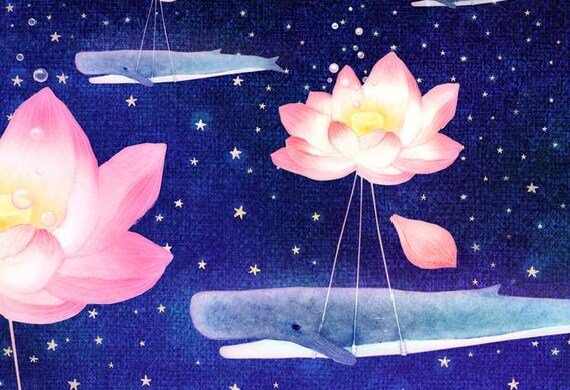Changes Keep Me United With Life

Sooner or later we all do it: we realize that authentic intelligence lies in knowing how to adapt to changes with your head held high. At the end of the day, nothing stays forever, and nothing that leaves is ever truly lost. Resisting changes is what can truly hurt you. Accepting them means understanding that without changes things like the butterfly wouldn’t exist.
There’s a very curious fact when it comes to changes. Our species has reached its current state of evolution thanks to changes. Also, thanks to the evolutionary process that these small innovations have offered us. However, the brain prefers permanency, stability and a comfort zone with no dangers. Now, in that area of tranquility and security where nothing new happens, dissatisfaction and annoyance unavoidably emerge.
Charles Darwin said it himself in his works. He who survives in this complex and sometimes threatening world is not the strongest nor the most intelligent. It is he who adapts the best to changes. However, nobody has taught us how to do that. We haven’t been educated to be brave when someone leaves us. Nor do we have a manual about how to accept the passage of time. Nor have we been told what skills we need in order to change our mindset, which our existence sometimes needs in order to be a little more happy.
Just as David Bowie explained in his song “Changes”, at times there is nothing to do but turn around and face the unknown, that “something” that we have been waiting on for so long while we were living the wrong life.

Changes in women: crisis and revolutions
When we talk about changes in women, we think almost instantly about the passage from childhood to youth or from youth to maturity. During these transformations, hormonal shifts plunge us into a complex of cycles, phases and stages where we have to face new challenges, new lessons. Now, let’s leave aside these physical or hormonal dimensions and delve into what really matters. And that is, emotional changes and the development of new attitudes.
Bowie said in one of his songs, “I still don’t know what I was waiting for”. This is a very common and persistent sensation during the bigger part of our lives. Until suddenly we choose to stop waiting and move into action. It might seem funny, but that “leap” in the personal growth of a woman and the real search for a change doesn’t occur in your 40’s. It starts in this stage, but doesn’t end until your 50’s.
Not all changes are traumatic, nor do they suppose the end of a certain vital stage. Most of them are a simple step forward that is in perfect harmony with our process of personal growth. However, and this is where the conflict comes into play, we’re not all willing to see that need to move forward, to take that brave step which will place us beyond the limits of our comfort zone.
“You can’t change the beginning, but you’re always in time to write a new ending.”
Thanks to an interesting investigation lead by the Harvard Decision Science Laboratory, it was proven that when starting a change, our brain puts 3 types of emotions into motion. Very concrete emotions that we need to analyze and understand, but not avoid. You have to live and experience them in order to channel them and facilitate your progress forward.
Let’s look at this a little more closely.
Rage
Allowing ourselves to feel a strong emotion every once in a while is not negative. For example, rage can act like a great motivator. It reveals the current discomfort you’re feeling, in its raw state.
Likewise, rage and anger can give us a certain sense of control when it comes time to motivate ourselves to take risks and initiate change.
Sooner or later we all do it: we realize that authentic intelligence lies in knowing how to adapt to changes with your head held high. At the end of the day, nothing stays forever, and nothing that leaves is ever truly lost. Resisting changes is what can truly hurt you. Accepting them means understanding that without changes things like the butterfly wouldn’t exist.
There’s a very curious fact when it comes to changes. Our species has reached its current state of evolution thanks to changes. Also, thanks to the evolutionary process that these small innovations have offered us. However, the brain prefers permanency, stability and a comfort zone with no dangers. Now, in that area of tranquility and security where nothing new happens, dissatisfaction and annoyance unavoidably emerge.
Charles Darwin said it himself in his works. He who survives in this complex and sometimes threatening world is not the strongest nor the most intelligent. It is he who adapts the best to changes. However, nobody has taught us how to do that. We haven’t been educated to be brave when someone leaves us. Nor do we have a manual about how to accept the passage of time. Nor have we been told what skills we need in order to change our mindset, which our existence sometimes needs in order to be a little more happy.
Just as David Bowie explained in his song “Changes”, at times there is nothing to do but turn around and face the unknown, that “something” that we have been waiting on for so long while we were living the wrong life.

Changes in women: crisis and revolutions
When we talk about changes in women, we think almost instantly about the passage from childhood to youth or from youth to maturity. During these transformations, hormonal shifts plunge us into a complex of cycles, phases and stages where we have to face new challenges, new lessons. Now, let’s leave aside these physical or hormonal dimensions and delve into what really matters. And that is, emotional changes and the development of new attitudes.
Bowie said in one of his songs, “I still don’t know what I was waiting for”. This is a very common and persistent sensation during the bigger part of our lives. Until suddenly we choose to stop waiting and move into action. It might seem funny, but that “leap” in the personal growth of a woman and the real search for a change doesn’t occur in your 40’s. It starts in this stage, but doesn’t end until your 50’s.
Not all changes are traumatic, nor do they suppose the end of a certain vital stage. Most of them are a simple step forward that is in perfect harmony with our process of personal growth. However, and this is where the conflict comes into play, we’re not all willing to see that need to move forward, to take that brave step which will place us beyond the limits of our comfort zone.
“You can’t change the beginning, but you’re always in time to write a new ending.”
Thanks to an interesting investigation lead by the Harvard Decision Science Laboratory, it was proven that when starting a change, our brain puts 3 types of emotions into motion. Very concrete emotions that we need to analyze and understand, but not avoid. You have to live and experience them in order to channel them and facilitate your progress forward.
Let’s look at this a little more closely.
Rage
Allowing ourselves to feel a strong emotion every once in a while is not negative. For example, rage can act like a great motivator. It reveals the current discomfort you’re feeling, in its raw state.
Likewise, rage and anger can give us a certain sense of control when it comes time to motivate ourselves to take risks and initiate change.
This text is provided for informational purposes only and does not replace consultation with a professional. If in doubt, consult your specialist.







